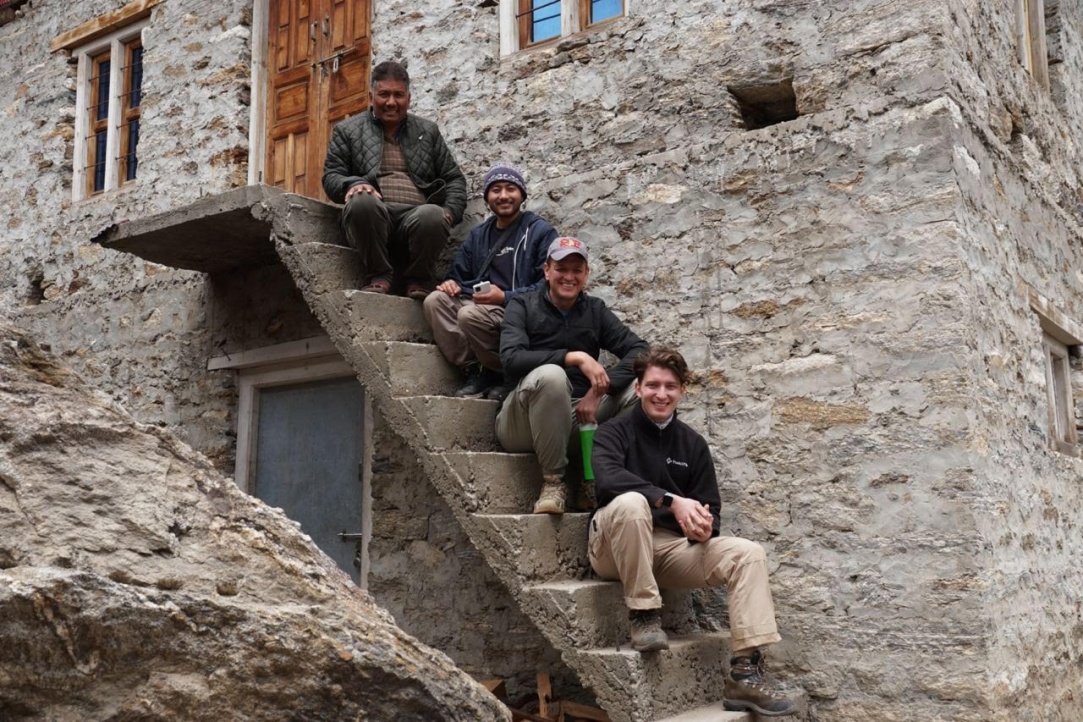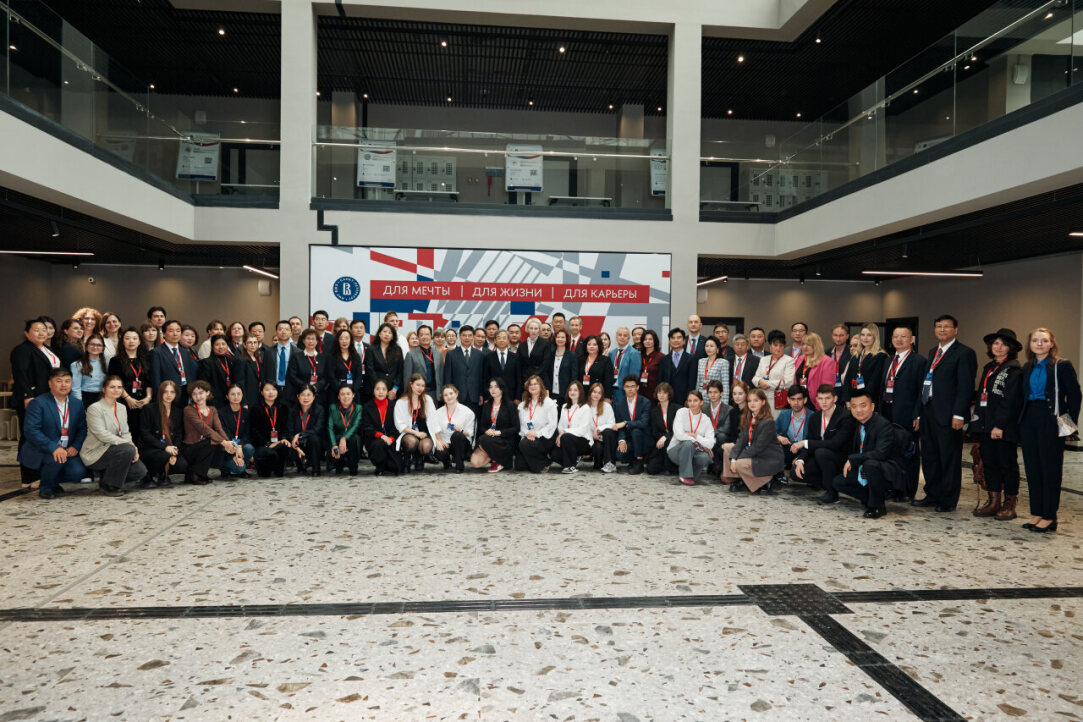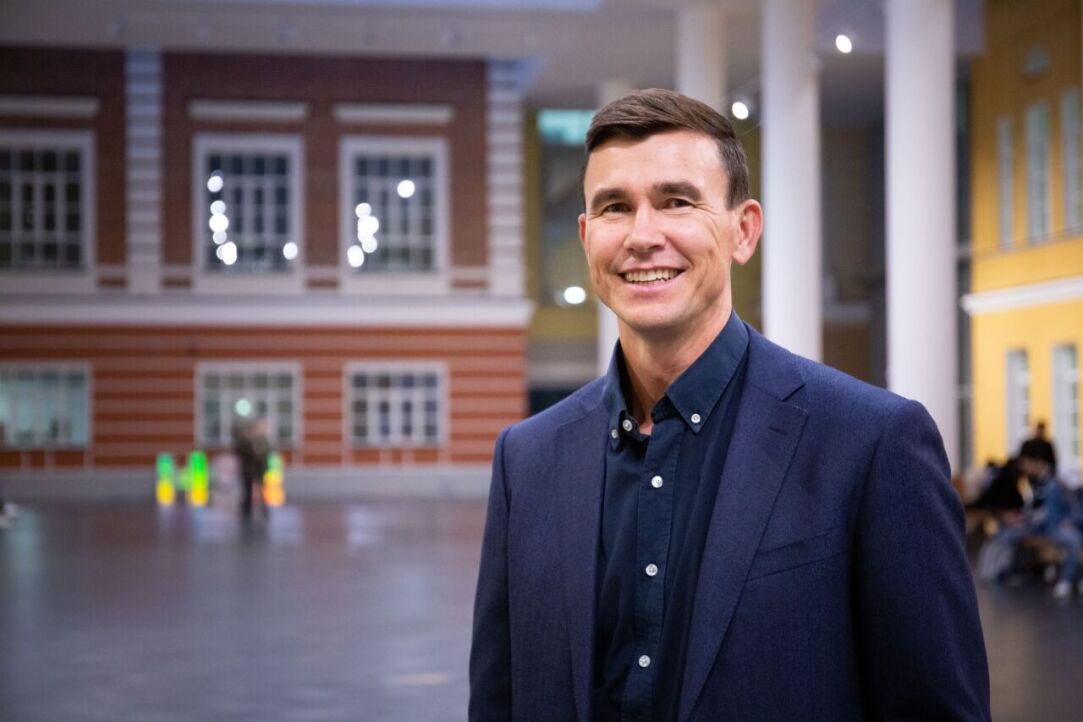
'We Explore Areas Where Much Remains Unknown'
Computational methods for analysing ancient and modern genomes make it possible to study the formation of genetic diversity in populations, reconstruct their history of mixing and migration, and trace the development of environmental adaptations. The HSE International Laboratory of Statistical and Computational Genomics applies mathematical methods and genetic data to address a wide range of issues across fields such as anthropology, epidemiology, and criminology. The HSE News Service spoke with the laboratory head, Vladimir Shchur, about its work.

Million-Rouble Startup: HSE University Students on Their Projects
Anastasia Yanke and Vadim Yelkin, students of the HSE Tikhonov Moscow Institute of Electronics and Mathematics (MIEM), have each received a grant of one million roubles to pursue their entrepreneurial ventures. The Student Startup programme has been implemented for four years by the Foundation for the Promotion of Innovation as part of the federal project Technology to support startup projects by students of Russian universities. This season, 43 projects of HSE University students are among the winners.

Internal Clock: How Heart Rate and Emotions Shape Our Perception of Time
Our perception of time depends on heart rate—this is the conclusion reached by neuroscientists at HSE University. In their experiment, volunteers watched short videos designed to evoke specific emotions and estimated each video's duration, while researchers recorded their heart activity using ECG. The study found that the slower a participant's heart rate, the shorter they perceived the video to be—especially when watching unpleasant content. The study has been published in Frontiers in Psychology.
.jpeg)
Early-Career Researchers Discuss Cooperation between Russia and Arab States
HSE University has hosted a conference entitled ‘Russia—The Arab World: Digital Future and Youth Cooperation,’ organised by the Faculty of World Economy and International Affairs (WEIA). The meeting took place in the run-up to the first Russian–Arab summit, due to be held in Moscow on October 15, 2025.

Environmental Regulation in Russia and India
In Schola’s latest instalment showcasing the winners of the International Academic Cooperation of HSE University competition, Aleksei Sorbale speaks about the project ‘Regional and Inter-Regional Associations in Norm-Building and Norm-Control in the Area of Environmental Regulation in Russia and India,’ carried out jointly with a research team from India’s University of Petroleum and Energy Studies (UPES).

Try Your Hand at Predicting the 2025 Nobel Prize Winner in Economics
How much do you know about today’s leading economists? Put your knowledge to the test in this year’s competition to predict the winners of the Nobel Prize in Economic Sciences. Organised by the HSE University Faculty of Economic Sciences, the competition is a chance to show off your knowledge of leading economic figures and trends. Online voting is open until October 13.

Generation Z's Digital Revolt: HSE Examines a Million Messages from Nepali Social Media
In September 2025, young people in Nepal took to the streets, armed not with party slogans but with online chats. Researchers at HSE analysed a million messages on a Discord server to understand the mechanics of youth protest. Experts discussed why the protesters identified themselves as Generation Z and what lessons can be drawn from this experience.

Russian–Chinese Forum at HSE University–St Petersburg Provides Platform to Discuss Best Practices of AI Use
On September 23, the HSE University–St Petersburg Rope Shop Building hosted the Second Russian–Chinese Forum 'Culture of Education' and the annual meeting of the Russian–Chinese Association of Applied Research Institutes. More than 100 participants from leading non-government Chinese universities and representatives of 15 Russian universities discussed the integration of artificial intelligence in education and industry.

‘It Was Interesting to See How Our Chinese Colleagues Work’: HSE Researchers Take Part in Hefei Summer School
This summer, Diana Sukhoverkhova, Daria Mazur, and David Kagramanyan, research assistants at the MIEM HSE Laboratory for Computational Physics, spent five weeks in China. At the Future Scientist Exchange Program (FuSEP) summer school in Hefei, they worked in new fields of science together with their Chinese colleagues. HSE's promising scientists spoke to the HSE News Service about their intense and productive time in China.

‘We Will Develop the Sports That Staff and Students Are Fond of’
The HSE Corporate Academy has established the Sports Community Support Centre, headed by Olympic rowing champion Sergey Fedorovtsev. He spoke with the HSE News Service about his career, university sports, and the centre’s work.


Registration is open until October 4, 2025